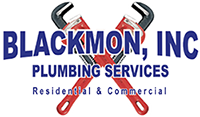Safety Tips When Conducting DIY Water Line Repairs
Embarking on do-it-yourself (DIY) water line repairs can be a fulfilling endeavor, allowing homeowners to take control of their plumbing issues while saving on costs. However, without the proper precautions, DIY repairs can pose significant risks to your safety and the integrity of your home’s plumbing system. This article provides essential safety tips for homeowners tackling water line repairs, ensuring that your DIY projects are completed safely and effectively.

Understand Your Limits
Before beginning any repair, assess the complexity of the issue. If the problem extends beyond basic repairs, such as replacing a faucet or fixing a minor leak, consider consulting with a professional. Water line repairs can involve complex diagnostics and specialized tools that might be beyond the scope of typical DIY efforts.
Turn Off the Water Supply
Always start by turning off the main water supply to your home. This prevents water from flowing to the area you’re working on, reducing the risk of water damage and allowing you to work on the pipes safely.
Wear Appropriate Safety Gear
Protect yourself by wearing the right safety gear, including gloves to protect your hands from sharp tools and edges, safety goggles to guard against flying debris or hazardous materials, and sturdy footwear to prevent slips and falls.
Use the Right Tools for the Job
Having the correct tools is crucial for both the success of the repair and your safety. Ensure you have pipe cutters, wrenches, and other necessary equipment that’s in good condition and suitable for the task at hand.
Beware of Electrical Hazards
Water and electricity are a dangerous combination. Be mindful of electrical outlets, appliances, and wiring near your work area. If you’re working close to electrical systems, consider turning off the power to that section of your home to avoid electrocution.
Ventilate the Area
If you’re using any chemicals or soldering, ensure the area is well-ventilated. Fumes from solvents or soldering materials can be harmful if inhaled in enclosed spaces.
Test Your Repairs Before Use
After completing the repair, but before turning the main water supply back on, ensure all connections are secure. Once you’re confident in the repair, gradually turn the water back on and monitor the repaired section for leaks.
Keep an Emergency Plan Ready
Always have a plan in case something goes wrong. Know how to quickly turn off the water supply and have the contact information for a professional plumber readily available should the situation escalate beyond your control.
Avoid Over-Tightening Connections
When reassembling pipes and fittings, avoid over-tightening. This can cause damage to the threads or the pipe itself, leading to leaks. Tighten until firm, then check for leaks to determine if further tightening is necessary.
Stay Informed on Local Regulations
Before starting your repair, familiarize yourself with local plumbing codes and regulations. Some repairs may require permits or inspections to ensure they meet safety standards.
DIY water line repairs can be a cost-effective way to address plumbing issues, but safety should always be the top priority. By following these tips, homeowners can minimize risks and ensure their plumbing repairs are not only successful but also safe. Remember, when in doubt, consulting with a professional like Blackmon Plumbing can provide peace of mind and guarantee the longevity and reliability of your water line repairs.
DIY Mastery: Tackling Simple Water Line Repairs
Embarking on DIY water line repairs can be a fulfilling challenge, allowing homeowners to address minor issues without the need for professional intervention. For straightforward tasks such as fixing a leaky joint, replacing a section of pipe, or installing a new fixture, a well-equipped DIY enthusiast can often manage effectively. Key to success is having a clear understanding of the plumbing system, using the right tools, and following safety guidelines meticulously. Simple repairs like applying pipe tape to threaded connections, replacing washers in leaky faucets, or using a pipe clamp for minor leaks can prevent water waste and protect your home from water damage, empowering homeowners with a sense of accomplishment and self-reliance.
Securing the Flow: Professional Water Line Repair Insights
When water line issues escalate beyond the realm of simple DIY fixes, professional water line repair becomes indispensable. Professionals bring expertise, advanced diagnostic tools, and comprehensive solutions to the table, addressing not only the symptoms but the root cause of plumbing problems. Techniques such as trenchless pipe repair, hydro-jetting, and video pipe inspection ensure precise, long-lasting repairs with minimal disruption to your property. Opting for professional services guarantees that repairs adhere to local codes and standards, safeguarding your home’s plumbing integrity and your peace of mind. Whether facing complex leaks, extensive corrosion, or major blockages, enlisting the expertise of seasoned professionals like Blackmon Plumbing ensures your water system remains robust and reliable.
